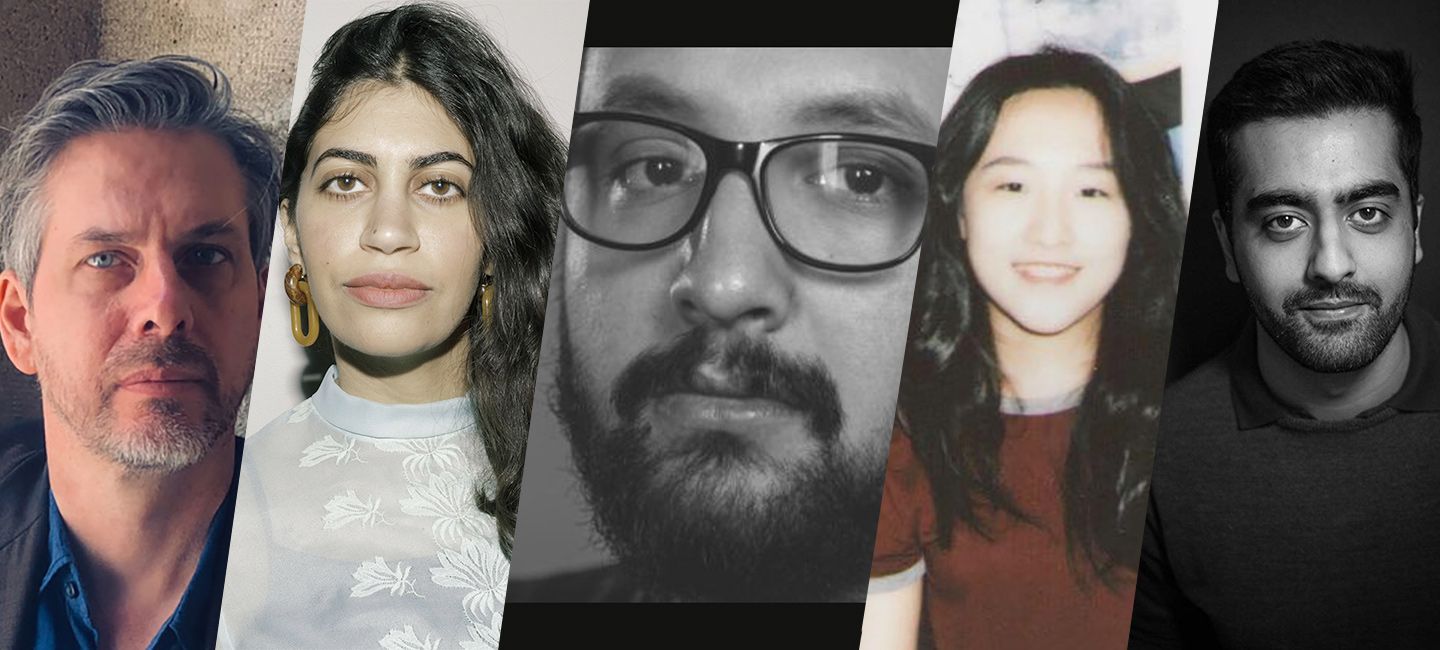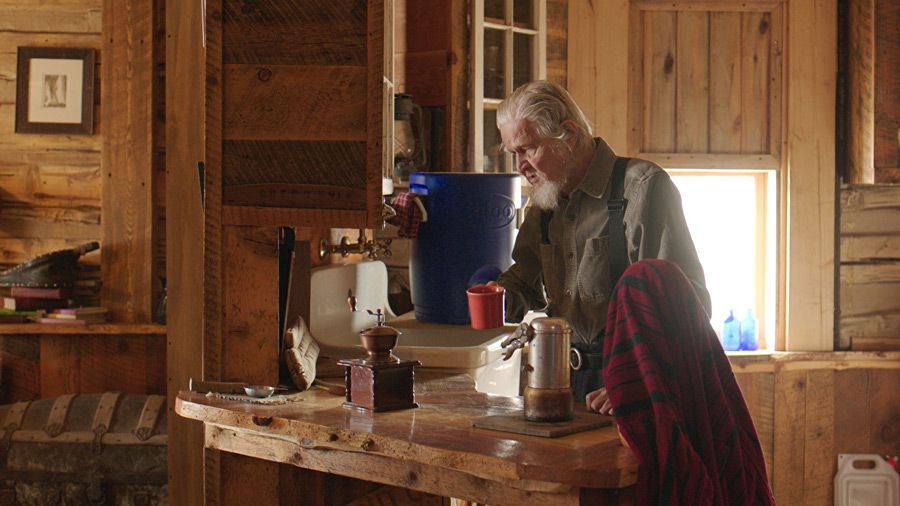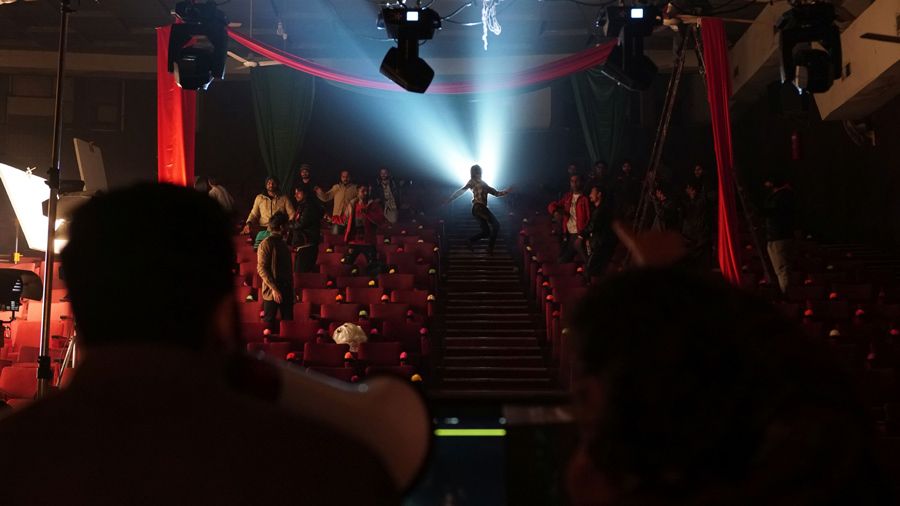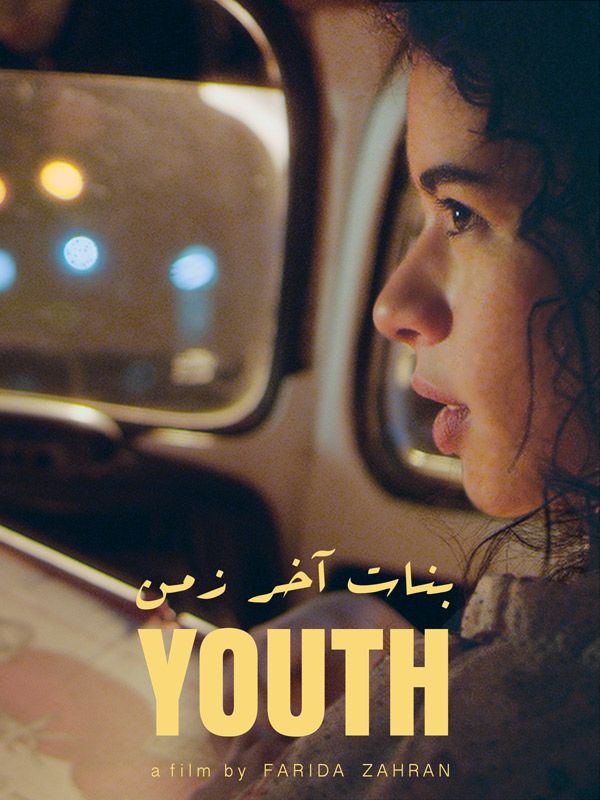
Five on Focus: We’re Streaming IFP’s Inaugural Student Short Film Showcase
Discover 2019’s winning filmmakers and their remarkable vision
At the 2019 Gotham Awards, the Independent Filmmaker Project (IFP) announced the winners of their Inaugural Student Short Film Showcase. A jury of leading film critics, programmers, and curators reviewed selections from a range of American film schools to pick their five winners. The final five offer a global vision for the future of cinema. Writer/director David Rosfeld (from CUNY Brooklyn College) captures the lives of an elderly gay couple facing a crisis in a remote Rocky Mountain town in Bob & Dale. Writer/director Farida Zahran (from New York University’s Tisch School of Arts) follows a young woman in Cairo exploring the night in Youth. Writer/director Sudarshan Suresh (from Columbia University) follows a young couple whose brief moment of intimacy leads to a public shaming in a Mumbai park in Mizaru. Tiantian Wang (from School of Visual Arts) showcases the life and work of Bill Dilworth, curator of New York City’s Earth Room, in her documentary Keeper of Earth and Time. And writer/director Saim Sadiq (from Columbia University) stages the touching tale of a young trans woman’s attempt to perform in a Lahore theater (and the young man who supports her) in Darling. After appearing as part of the JetBlue’s inflight entertainment this year, these films will be available on Focus Features digital streaming platforms. Championing these remarkable films and the IFP’s Student Short Film Showcase, Focus Features Chairman Peter Kujawski exclaimed, “Students and recent graduates are making some of the most daring projects we see each year."
We talked to the filmmakers—Rosfeld, Zahran, Suresh, Wang, and Sadiq, pictured above—to learn more about their films, themselves, and their plans for the future.
Where did the idea for your film come from?
Rosfeld: It was an escape from the polarization I was seeing around me by telling a story I was not seeing in the news…I had also just started a new relationship, so I was sort of projecting into the future what I hoped a long-term relationship could be.
Zahran: I grew up watching American teen movies. Although those films did provide me with the comfort of knowing I wasn't alone in my confusion, I always longed for Arab content that represented my experience in all of its complexity.
Suresh: Unable to find privacy, young couples from middle-class and lower-class families in India seek refuge in parks, malls, stations and other public places. This public display of intimacy is met with the ire of the moral police, who are essentially self-appointed custodians of Indian culture. On the surface, Mizaru tells the story of one such couple that finds itself at the mercy of this right-wing vigilantism, but deeper down, it is an examination of the societal apathy that allows such impropriety to thrive.
Wang: It was for an assignment in my first year studying in the MFA Social Documentary Film program at the School of Visual Art: to find an interesting character in New York City and make his/her story into a short film.
Sadiq: I wanted to explore a Pakistani queer narrative about masculinity and femininity…The queer community in Pakistan doesn't operate under the Eurocentric or Americanized rules and labels surrounding sexuality. I wanted to create a very locally rooted world that celebrates individual freedom and choices, despite their questionable nature.

Robert W. Smith (Dale) in David Rosfeld’s Bob & Dale.
How did you cast your leads?
Rosfeld: Robert W. Smith [who plays Dale] was someone who had been living in the [West] Village since the late 1960s, He had been an actor as a young man, then an activist… The script was something he had waited his entire life to play. He was 83 during the audition, and 84 when we filmed….[I cast Mark Hattan (Bob) because] I could just see the two of them together.
Zahran: Yasmeen El Hawary has an amazing ability to say so much without speaking a word of dialogue and that was exactly what we were looking for.
Wang: I discovered Bill Dilworth by reading an article about him in the "Character Study" column in The New York Times.
Sadiq: We auditioned several trans girls but couldn't find the right one. Alina Khan came in early on for an audition but since she had never acted before, she was nervous and I didn't find her exciting at that time. My casting director Sana Jafri kept pushing me to audition her again because she thought Alina could do it.

Alina Khan dancing in Saim Sadiq's Darling.
Where did you shoot the film?
Rosfeld: I bought an old vintage trailer in Oklahoma and pulled it up to Creede, Colorado, where I lived for a couple of months and reacquainted myself with this mountain town that I had known as a child. Being there planted the seed for Bob & Dale.
Zahran: We shot off the east bank of the Nile in Maadi, a fairly affluent neighborhood in Cairo. It’s a place that people view as safe. As women, I think our sense of paranoia about walking alone at night kicks in regardless of the type of area.
Suresh: We shot the film in a semi-public park called Central Park in the suburbs of Mumbai, India. We were keen on a location that afforded us complete control over the space, while also having enough variation in the landscape to allow for interesting choreography. We hired dozens of extras to populate the park, including evening walkers and kids playing in the distance. The film was shot in one long take and there are no hidden cuts or transitions. Since Mizaru is a story that takes place in real time within the confines of a single location, it was imperative that the film be able to hold the audience’s attention from start to finish.
Sadiq: The film was shot entirely on location in the Mehfil Theatre in the old city of Lahore. It was actually a cinema hall many decades ago, but it had to be turned into a theatre when the downfall of Pakistani film industry happened in the late 80s and 90s.
What was the first film you remember seeing?
Rosfeld: I grew up in a conservative religious environment and I wasn’t allowed to watch films as a kid. Going to the cinema was considered sinful. My mom was a little more lax. She snuck me into The Empire Strikes Back and Raiders of the Lost Ark.
Zahran: Care Bears Movie II: A New Generation. We rented it from the video store next to our house in Cairo so many times that the guy who worked there eventually let us keep it.
Suresh: One of the earliest films that I recall watching as a child was Steven Spielberg’s cult classic Duel, something I have gone back to on multiple occasions as a guilty pleasure. I was amazed at how a 90-minute debut film about a man being chased by a mysterious truck could be so terrifying.
Wang: I can't remember any specific films, but my parents took me to movie theaters quite often when I was a child. Even though I couldn't understand many of the films, I enjoyed the atmosphere in the theaters a lot. Maybe that pushed me to step into filmmaking.
Sadiq: The first film I remember seeing as a child is a Bollywood classic romance called Dilwale Dulhaniya Le Jayeinge. I am still in love with that film. It is a wonderfully cheesy but heartfelt romance for the ages and I believe my fascination for making romances comes from that film and others like it.

The poster for Farida Zahran's Youth.
What was the movie that made you want to make films?
Rosfeld: Growing up on the outskirts of Oklahoma City, saying you want to be a filmmaker was like saying you want to be an astronaut. But as a teenager I got a poorly dubbed VHS copy of Eraserhead. That film made me realize that there was another way of seeing the world. I knew then I wanted to be a part of something that could create that.
Zahran: Inception. I was a freshman in college around the time it came out and it coincided with me making my first film. I think it just gave me permission to be ambitious with my goals.
Suresh: My taste in cinema quickly evolved over the years and there are two films that influenced my decision to become a filmmaker: Andrea Arnold’s Fish Tank and Asghar Farhadi’s A Separation.
Sadiq: I don't think my desire to become a filmmaker came from my obsession with cinema. My desire and need to make films comes from wanting to understand the world that we all inhabit as people and the society that we live in.
Who are your influences?
Rosfeld: Nothing original in my answer. Kubrick, Lynch, Tarkovsky, Kieślowski—they all rocked my world. Most recently filmmakers like Josephine Decker, Eliza Hittman, Kelly Reichardt blew me away.
Zahran: Artists like Donald Glover, Phoebe Waller-Bridge, and Miranda July. People who don’t feel bound by genre or medium and who take artistic liberties.
Suresh: Asghar Farhadi, Andrea Arnold, Andrei Zvyagintsev, Thomas Vinterberg, Jean-Pierre Dardenne and Luc Dardenne.
Wang: Perhaps my dad. He works as a documentary series producer at a TV station. When I was a child, I was proud of what he did. The influence was very subtle but persistent. He never forced me to watch his films, which [may have] been a little boring to a young kid. If he did, I might’ve lost interest in documentaries for good.
Sadiq: I have learnt a lot from all of them. Asghar Farhadi, Paul Thomas Anderson, Satyajit Ray, and a lot of mainstream old Bollywood films as well
What has been the upshot of being chosen for IFP’s Student Short Film Showcase?
Rosfeld: For the IFP, the Gotham Awards, and Focus Features to say they believe in you, every interaction I have with a producer is that much more effective.
Zahran: It's been an amazing opportunity to have the film reach a wider audience through Focus Features and JetBlue's platforms.
Suresh: Being selected to IFP’s Student Showcase and being honored at the Gotham Awards gave me much needed visibility and credibility as a filmmaker, both in the US and abroad. It has definitely opened doors and created opportunities for dialogue with US-based producers and studios in the run-up to my first feature film.
Wang: I'm very honored that the film could be chosen as part of the program which will definitely be a nice line on my resume. The daughter of my character Bill accidentally saw that film on JetBlue. She was very surprised and happy to see her dad in that way on a plane. As a filmmaker, that happiness means a lot to me.
Sadiq: It was nice to get the limelight, for sure. I am hoping once the film is released to a worldwide audience online through Focus Features that the film will find a wide viewership. That is my dream and ultimate goal as a filmmaker: to have my film seen by the general public.
Do you have a favorite Focus film?
Rosfeld: I did a master class when I was living in the UK with Ang Lee and [former Focus CEO] James Schamus. The energy that those two brought into this class inspired me for five years. It was so nourishing. The partnership was just beautiful. It reminded me that you can be ambitious and still be very human. When I see the Focus logo, I think of that legacy.
Zahran: Sofia Coppola’s Lost In Translation.
Suresh: I could count more than a dozen Focus Features titles among my favorite films of the recent past, but if I had to narrow my choice down, it would be Jarmusch’s Broken Flowers and Sofia Coppola’s Lost in Translation. Not merely for my die-hard admiration for Bill Murray as an actor and a human being, but also for my love of observant storytelling, wry humor, and melancholic cinema.
Wang: I want to shout out to Brokeback Mountain because I watched it when I was a kid and it didn't necessarily influence me in any way to become a filmmaker, but it has left me thinking about emotions, relationships, and love.
Sadiq: Eternal Sunshine of the Spotless Mind. My absolute favorite film by Focus but also one my favorite films of all time.
What’s next for you?
Rosfeld: I have two feature-length scripts that I am developing. One set in Colorado Springs and other one in Florida. I am starting a third project in the writing phase. And I am teaching.
Zahran: I’m directing a short dark comedy musical that I wrote last year. And I’m doing rewrites on my first feature, also a comedy.
Suresh: I am currently in early development on my first feature film, also titled Mizaru. While unconnected to the short in terms of story, the feature is a densely woven domestic suspense-drama that deals with similar themes of class-conflict, moral dilemmas, and societal apathy. I am also simultaneously exploring opportunities to write and direct for a television series.
Wang: I'm now working on a feature documentary film (perhaps my first feature) about the 10-year fishing ban in the Yangtze River in China.
Sadiq: I am working on my feature that Darling was based on and developing a few series ideas.
Sign up for the all-new Focus Insider program to unlock access to exclusive rewards, sweepstakes, once-in-a-lifetime movie experiences, and so much more!